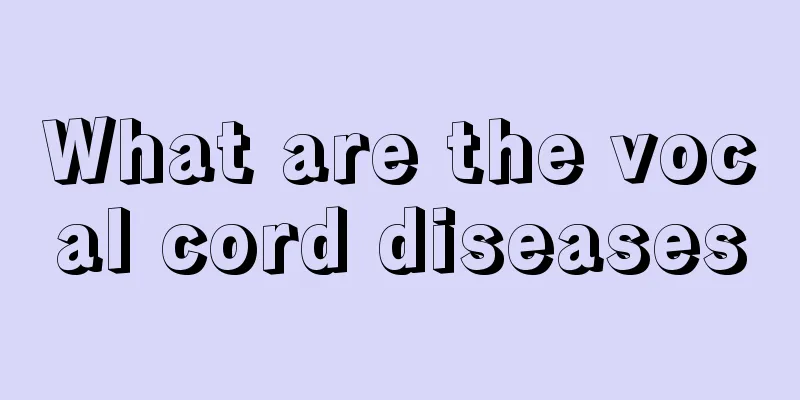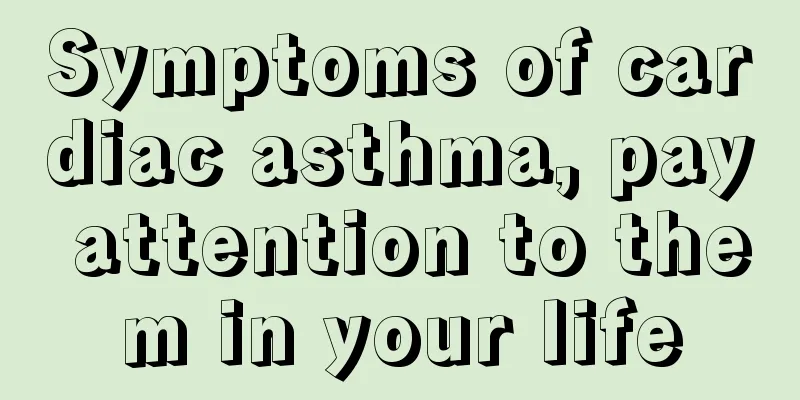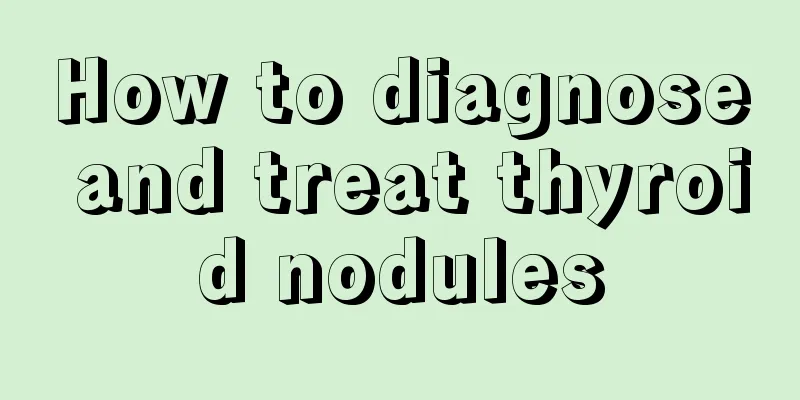What are the vocal cord diseases

|
The vocal cords are a relatively important part of the human body, and their main function is to produce sound. If you do not protect your vocal cords in daily life, or if you have certain diseases, it will cause some lesions in your vocal cords. If the vocal cords have a disease, a person's normal vocal function will be affected to a certain extent. Next, I will introduce you to some relevant knowledge about vocal cord diseases! 1. Why do vocal cords become diseased? First of all, we must be clear that although the physiological structure of the vocal cords is very complex, compared with most other organs in the body, it is still very fragile compared to the "heavy tasks" it undertakes. In addition to the vibration of each vocal cord's own mucous membrane, the most important vocal cord vibration mode is the "collision" vibration of the two vocal cords colliding with each other. In this case, if the resonance and amplification effect of the vocal tract is not properly utilized, and brute force is used to increase the air pressure under the glottis, or the voice is used vigorously for a long time, it will cause great damage to the vocal cords and eventually lead to various vocal cord diseases. What are the vocal cord lesions? Common vocal cord diseases include vocal cord congestion, vocal cord edema, vocal cord hemorrhage, vocal cord hypertrophy, vocal cord nodules, vocal cord polyps, vocal cord cysts, vocal cord Reinke edema, vocal cord paralysis, vocal cord closure weakness, vocal cord hyperfunction, etc. There are many reasons for vocal cord congestion and edema. Common vocal cord congestion and edema may be caused by other diseases such as colds, respiratory tract infections, pharyngitis, etc.; others are caused by excessive use of the voice, excessive physical fatigue, staying up late, smoking, drinking and other problems. 3. What to do if your vocal cords are lesioned Vocal cord congestion and edema can usually heal on its own if other diseases are treated, along with reasonable lifestyle adjustments and adequate rest. However, if vocal cord congestion and edema occur frequently and irregularly, you need to go to the hospital for further examination to find out the cause. If it is only caused by improper vocal method and voice use, corresponding vocal behavior correction and voice use improvement should be made under the guidance of a professional voice trainer. Especially for singers, long-term recurrent vocal cord congestion and edema can easily cause inflammatory hyperplasia of the vocal cords, making the originally normal vocal cords become hypertrophic. Once vocal cord hypertrophy occurs, the singer will experience problems such as clumsy and laborious vocalization, difficulty in producing weak voices, and easy fatigue, all of which will seriously affect the singer's artistic level. |
<<: What meridians are there on the inner thigh
>>: Is vocal cord edema serious?
Recommend
What are long johns
Do you know what autumn trousers are? Although we...
What to do if you have a stuffy nose and runny yellow nose
Nasal congestion and clear yellow nasal discharge...
Which blood spot should I press for toothache
Long-term tooth pain can be very distressing to t...
What are the early symptoms of lymphoma? Are they serious?
Lymphoma is a disease that people are afraid of b...
Urine is golden yellow
A normal person's urine should be transparent...
What is the cause of cough with thick phlegm
If there is a lot of sputum and it is thick, and ...
Is erythema nodosum easy to treat?
Erythema nodosum is a common skin disease. After ...
10 little secrets about "farting"
1. Will eating beans cause you to fart? Have you ...
There is phlegm behind the nose and in the throat
Having phlegm in the throat is a very common symp...
What are the causes of low blood pressure?
Low blood pressure is a disease that many of our ...
What are the hazards of sponge mattresses
Nowadays, many people's lives have entered a ...
Anti-dandruff shampoo can only be used a few times a week
There are many factors that cause dandruff. There...
What does a closed mouth look like
What does a closed comedones look like? Generally...
What is Fibrous Histiocytoma? Learn about Fibrous Histiocytoma
What is fibrous histiocytoma? Generally, benign f...
What are the symptoms of a sprained ankle and fracture?
Many friends like to exercise, but strenuous exer...









